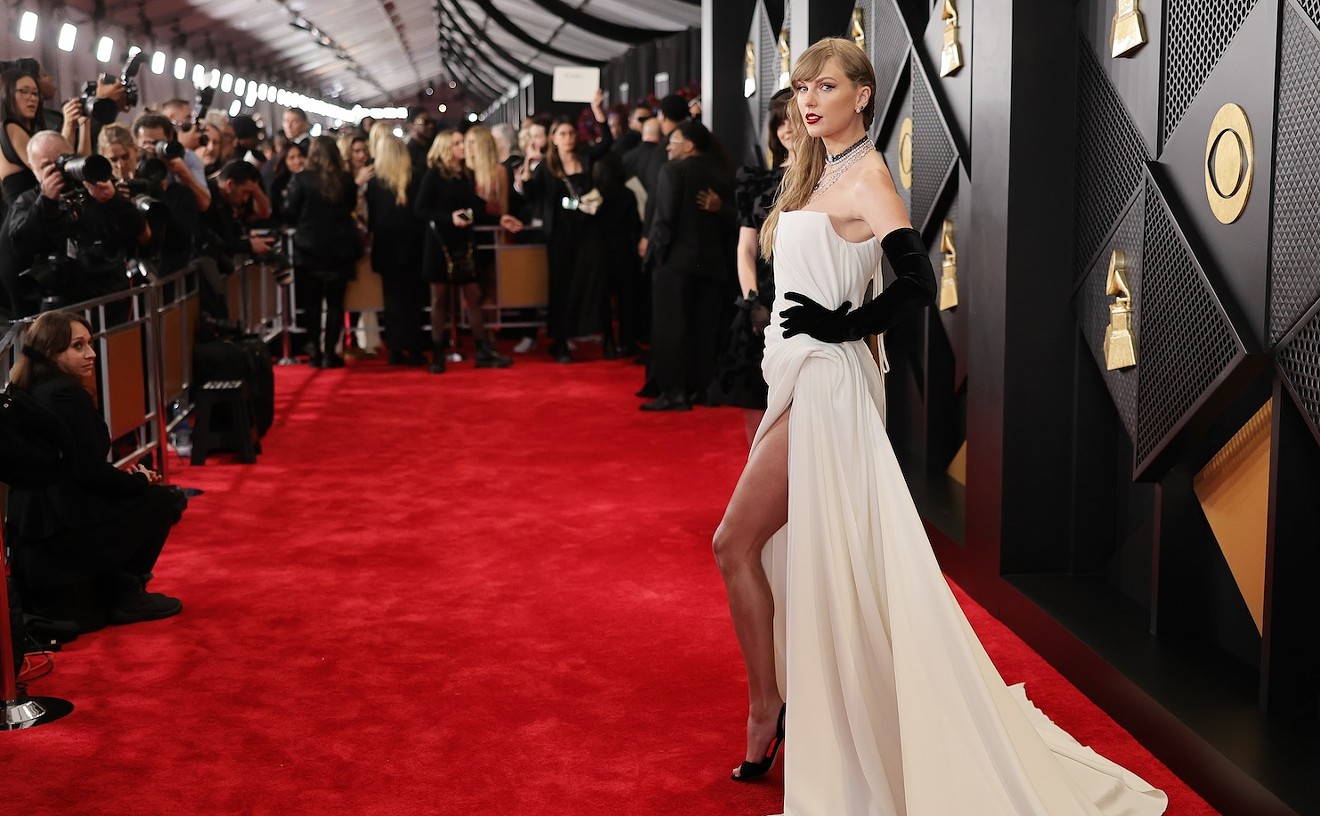Pray found a solution. Hype! isn't your average rock and roll movie. There are 23 live performances, dozens of songs, and 24 tracks of blaring digital sound. But really, Hype! is a story about theft, about carpetbagging leeches who steal culture and the kids who get sold out in the process. The film's tale of cultural appropriation is an old one, but it has rarely been told with as much finesse and panache.
I met Pray and Helvey in a stylish room at San Francisco's Commodore Hotel on Halloween. Both had just finished a whirlwind publicity tour through Seattle and an early morning radio interview in San Francisco. Pray gobbled vitamin B-12 while Helvey pounded Diet Coke over ice.
What's the response like in Seattle? That's the home turf; did they throw hardballs at you?
Doug Pray: Without trying to toot our own horns, we were totally surprised and pleased with the response. It could have been a goddamn nightmare if they hated this movie. They don't want to go through a whole other cycle of hype on their scene.
Steve Helvey: Everyone has had some suggestion of ways we might have done it differently. There were bands that we would have loved to have in the movie that for one reason or another didn't make it in.
DP: There was a randomness to who got in and who didn't. It was like, "Where were we when we were filming out of the few days in four years that we actually had money and film in the cameras?" In the end, there are dozens and dozens of bands in the movie. But it's not really one of those PBS specials where you really go through the whole history.
SH: It's a historical retrospective more in a visceral sense than academic.
What do you mean?
DP: We're telling a story. It's not a concert film. We're telling a story about, whatever you want to call it -- our culture, about something that happened in an American city. And to tell the story of all of the bands, and their music, and their lyrics, and their interviews, becomes subservient to that story. It's much more in the tradition of the Decline of Western Civilization films.
Is that what you were after?
DP: The goal was always to figure out how to tell the story, have as many different bands as possible, and stylistically -- and this is why we were so fantastically broke the entire time -- either do it right or not at all. By that I mean color, super-16 film, three-camera shoots for every band.
You finished Hype! and it got rave reviews at the Sundance Film Festival, but then you had some problems getting distribution for the film. Why?
SH: When we started this, we had no money; we'd never made films before. We had no reason to believe that even the smallest bands, who were so sick of the scene, would agree to give us interviews or performances, much less Nirvana, Pearl Jam, Soundgarden, and those guys. Doug and I knew we'd have a great movie without any of the big bands. But we knew it wouldn't get to the screen without the marquee names that the movie people could use to market the film. [After we got those names] we thought surely one of the big independents would pick this thing up. And they just didn't.
DP: Because it's a documentary.
SH: The word coming back to us is that the word documentary is the kiss of death.
DP: A lot of people at different companies asked us, "Who's going to go see a movie with a bunch of different bands when they can turn on MTV?" That's like them looking at it like Hoop Dreams and saying, "Yeah, but basketball fans, they're going to want to go see the Knicks-Lakers game instead of wanting to see Hoop Dreams."
The other funny thing was the irony of making a movie about a community becoming overexposed, and kind of assailing the idea of people coming to town and wanting Nirvana, Soundgarden, Pearl Jam. What do we have to do to sell our movie? We have to live in that world. Yes, those bands are in it. Yes, it's about grunge. Yes, it's about the biggest music scene in the last decade. We find ourselves hyping this thing shamelessly.
SH: But the ethic of hyping it was the complete opposite of the ethic of making the film. We hated prostituting to that level.
DP: It was very depressing. Before June or July we thought this was just going to be a shelved thing.
[To Pray] You were from San Francisco.
DP:I was here when I began making films in the mid-Eighties.
Were you caught up in music at that time?
DP: Totally. I used to go to clubs seriously every weekend. It was that being young thing. We didn't have any money, but we went to the Fab Mab, places in Berkeley. The I-Beam was pretty important.
You were interested in Seattle via friends there.
DP: Yeah. And I have to say that what was interesting is that being in San Francisco -- it's an awesome city, and it's always had its own great music -- but when I was here, it fell into that category of what [Sub Pop photographer] Charles Peterson said in the film about New York and L.A.: people standing around in black and going, "Hmmm, I think the guitarist missed a note." When I would go to shows in Seattle I was like, "You know what? These people are totally not self-conscious." It was just like Charles said, reckless abandon and honest fun.
-- Jeff Stark










